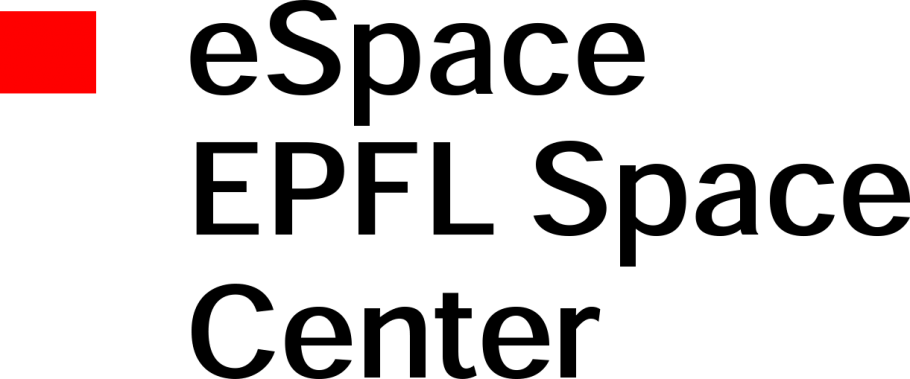Program
DAY 1
Tuesday Feb 16th (16:00-17:50 CET)

16:00
The vision of the SSL initiative
Introduction by Renato Krpoun, Head of Swiss Space Office and Jean-Paul Kneib, Director of EPFL Space Center (eSpace)
16:15
One small step, one giant (ecological) footprint?
Keynote by Simonetta Di Pippo, Director of UN Office for Outer Space Affairs (UNOOSA), Pascale Ehrenfreund, President of the International Astronautical Federation (IAF) and Chancellor of the International Space University (ISU) and Rüdeger Albat, Head of Ariane 5 and Future Preparation (ESA)
How do we asses space activities in term of sustainability? Things are now very different than the beginning of the space age, more than 60 years ago, with unprecedented space traffic and projects. UN Sustainability goals should be considered as strong guidelines for Earth preservation and Space exploration and exploitation as well, but how do space actors implement them? And can sustainable space be more than an oxymoron?
17:05
Are we overdoing sustainability ?
Panel discussion by Torsten Kriening, Publisher and CEO of SpaceWatch.Global
with
Thomas Schildknecht, Deputy director of the Astronomical Institute at the University of Bern
Roxy Güllmeister, Associate Architect - Specialist Modelling Group - at Foster+Partners London
Markus Mooslechner, Executive Producer at Terra Mater Factual Studios
Abstract coming soon
DAY 2
Wednesday Feb 17th (16:00-18:15 CET)

16:00
Space Logistics: enabler of the final frontier (1960-2060)
Keynote by Olivier De Weck, Professor of Aeronautics and Astronautics and Engineering Systems at MIT
In this talk Pr. De Weck will review the current state and evolution of the field of Space Logistics starting with the human explorations of the Apollo Program in the 1960s and 1970s. From building and resupplying the International Space Station (ISS) since 1999, to developing a return to the lunar surface with humans as part of the Artemis Program as early as 2024 to human settlements on Mars starting in the 2030s we need to better understand the underlying theory and technological drivers.
Pr. De Weck will review generalized multi-commodity network flow theory (GMCNF) as implemented in SpaceNet, HabNet and other frameworks for planning and simulating exploration campaigns from a logistics perspective. Technology senstitivity analysis will look at the role of ISRU (in-situ resource utilization) - including our MOXIE experiment which is on the way to Jezero Crater on Mars as we speak to produce oxygen via solid oxide electrolysis (SOE) - ECLSS (environmental control and life support systems), as well as In-Space Manufacturing (ISM).
As we see on Earth in military campaigns and civilian commerce, it is logistics and supply chain management that enable long-term success and growth, and our future in space for the next century and beyond is no different.
16:45
Logistics transformation from a cost category to a strategic lever – on earth and in space
Keynote by Klaus Dohrmann, Vice President Sector Development for DHL Customer Solutions and Innovation (CSI)
The logistics industry went through various transformations in the last decades driven by technology advancements and - to a larger degree - by customer business and business model changes. At the same time logistics always has been an enabler of transformation and growth for customers and entire industries. Space logistics is an emerging niche within the logistics industry where many learnings from the past and concepts of today can be applied; on earth and in space.
DHL's vision of reliable, safe and sustainable logistics to connect people and to improve lives and the strategic theme of “Delivering Excellence in a digital word” are a strategic fit to space logistics. The keynote aims to outline the transformational changes within and with logistics, share learnings and existing supply chain concepts of today that can be applied in space and show customer-centric innovation cases.
17:30
NewSpace: enabling agile space logistics
Panel discussion by Maxime Puteaux, Principal advisor at Euroconsult
with
Luca Rossettini, CEO and Founder of D-Orbit
Jeremy Schiel, co-founder and Chief Development Officer of Orbit Fab
Joost van Tooren, Space Logistics Services Manager at ArianeGroup
Jason Forshaw, Head of Future Business (Europe) at Astroscale
Bringing together leadership from space logistics companies, this panel will present how players are setting up the building blocks of a sustainable space logistic supply chain and will highlight the following topics:
- The status of space logistics : new technologies, initiatives and trends that help players move forward
- Creation of a logistic ecosystem
- Interfaces, standard and compatibility between players’ solution
- Identified areas of commercial growth
- Role of government
DAY 3 Thursday Feb 18th (16:00-18:05 CET)

16:00
The ClearSpace-1 mission: ESA and ClearSpace team up to remove debris
Keynote by Muriel Richard-Noca, ClearSpace Chief Engineer & co-founder
The mission design started mid-2020 and is now in preliminary requirements phase to be completed mid of 2021. This new service, supported by eight ESA member states, allows the contractor to be responsible not only for the design but also for launcher procurement and operation of the mission, giving ClearSpace SA the necessary preparation to start future commercial Active Debris Removal and In-Orbit Servicing activities.
16:35
Pathways for Developing 'Rules' for Space Logistics
Panel discussion by Brian Weeden, Director of Program Planning for Secure World Foundation
with
Natália Archinard, Deputy Head of Education, Science and Space Section at Federal Department of Foreign Affairs
David Barnhart, Research Professor in the Department of Astronautical Engineering at University of Southern California
Tanja Masson-Zwaan, Assistant Professor and Deputy Director of the International Institute of Air and Space Law at Leiden University
Space logistics and satellite servicing include new commercial activities that promise to revolutionize the way we use space but also stretch existing regulatory and oversight frameworks. As a result, there have been calls for new "rules" on how these and other space activities will be governed. This panel will discuss how best practices, standards, national regulations, and international law all play a role in creating the governance framework for space and how that process may unfold for satellite servicing.
17:25
A sustainable space legacy for next generations?
Panel discussion by Claude Nicollier, astrophysicist, astronaut and professor emeritus EPFL / Space Innovation, Anne-Marlène Rüede, PhD student EPFL, SGAC SSS co-team leader and Kevin Pahud, EPFL student and Space@your Service association founding member
While space is more related to Earth’s activities and services than ever before, this entire industry is undergoing a massive transformation, with new actors, new business models, new perspectives and the likes of a « space for all » promise. At the same time, sustainability is part of the main challenges that mankind is facing and space will be no exception.
This legacy is initiated by today’s experts, but young students are already pushing for a change they will take part in. That’s why we decided to give a voice to EPFL students and young Space Generation Advisory Council (SGAC) members about their expectations, ideas and the way education should prepare them achieve these goals.
SGAC Space Safety & Sustainability project group will unveil the winner of this year’s essay competition: « what Space Traffic Management measures must be internationally implemented to improve the safety and sustainability of outer space? ».

